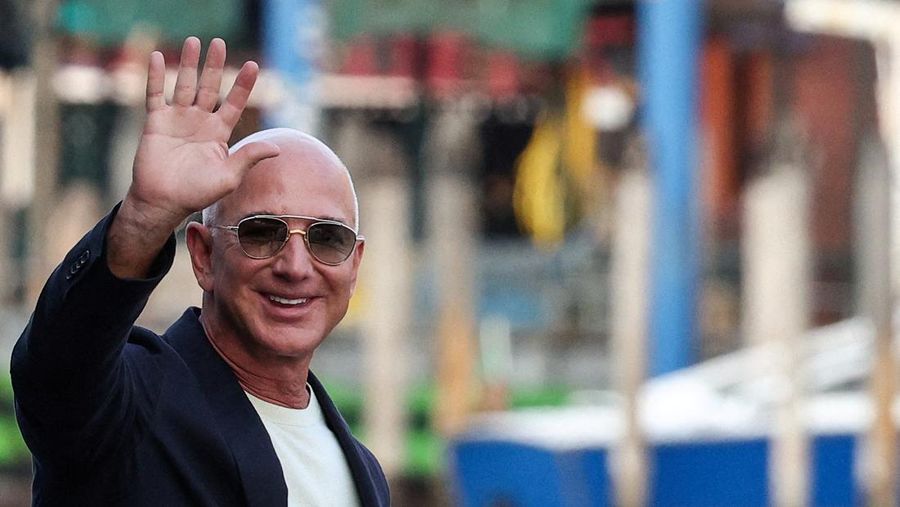Italy – As Jeff Bezos celebrated his opulent wedding to Lauren Sánchez on the historic island of San Giorgio Maggiore in Venice, Italy, the event served as more than a celebrity spectacle. It spotlighted the concentration of wealth and power in the hands of one of the most influential individuals in modern capitalism. With a personal fortune exceeding US$231.4 billion (Rp3.748 triliun), Bezos ranks as the third-richest person on Earth, according to Forbes’ Real-Time Net Worth index.
While local protests in Venice raised concerns about overtourism and the privatization of public space for elite festivities, the global media attention diverted from a more critical question: How expansive is the Bezos empire, and what are its implications on global markets, democracy, and sustainability?
Amazon: The Digital Leviathan
Founded from his Seattle garage in 1994, Amazon now commands 37.6% of the U.S. e-commerce market (2023). Although Bezos stepped down as CEO, he remains executive chairman and owns approximately 10% of the company—still his primary source of wealth. The company has transformed retail, logistics, and cloud infrastructure, while facing allegations of labor suppression, antitrust violations, and exploitative market dominance.
Blue Origin: A Privatized Space Race
Bezos channels around US$1 billion annually into Blue Origin, his aerospace firm and direct competitor to Elon Musk’s SpaceX. Funded mostly through Amazon stock sales, Blue Origin is not merely about commercial space travel—it reflects a broader ambition to extend capitalism beyond Earth, with questions surrounding environmental priorities and space governance remaining largely unanswered.
The Washington Post: Media as Influence
In 2013, Bezos acquired The Washington Post for US$250 million through Nash Holdings LLC. Under his ownership, the outlet has embraced digital-first strategies and global reach. Yet critics warn of blurred lines between media independence and billionaire ownership, especially in shaping public narratives and political sentiment in the U.S. and abroad.
Bezos Expeditions: Quiet Power in Silicon Valley
Through his venture fund, Bezos Expeditions, the Amazon founder has embedded himself in the technological backbone of the 21st century. Early investments in Google (1998), Uber, Airbnb, and Twitter have yielded enormous returns, but also placed Bezos in the command center of data-driven capitalism. Biotech ventures like Juno Therapeutics and Grail raise additional questions about the privatization of health innovation and genomic data.
The Philanthropic Equation
In 2020, Bezos pledged US$10 billion toward climate action through the Bezos Earth Fund, but so far, only a fraction—US$2 billion—has been disbursed. While hailed by some as generous, critics point to the contrast between his wealth accumulation and his opaque approach to giving, lacking the transparency and scale expected in proportion to his fortune.
He has publicly stated plans to donate most of his wealth in his lifetime, though without a detailed roadmap. Meanwhile, Amazon’s carbon footprint and labor conditions remain controversial.
Conclusion: Power Without Borders
Bezos’ empire is a case study in borderless wealth, unregulated influence, and strategic diversification. His assets—spanning e-commerce, aerospace, media, and biotech—intersect with global markets, political institutions, and public discourse. As the world faces challenges of inequality, climate change, and democratic fragility, the question is no longer how much Bezos is worth, but how much power one individual can hold in shaping humanity’s trajectory—on Earth and beyond.






